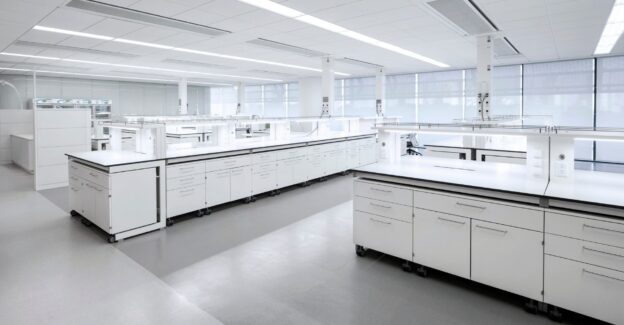Laboratories, the epicenters of scientific breakthroughs, are undergoing a transformation that goes beyond experiments and research. Contemporary laboratory furniture trends are reshaping these spaces into hubs of innovation and efficiency. In this blog post, we’ll take a deep dive into the evolving landscape of lab design, exploring the latest trends that redefine these critical workspaces.
Ergonomics and User-Centric Designs:
Unpack the importance of ergonomic laboratory furniture in enhancing the comfort and efficiency of researchers. Discuss the integration of height-adjustable workstations, ergonomic seating, and customizable setups that prioritize the well-being of lab professionals.
Modularity for Flexibility:
Explore the rise of modular lab furniture and its impact on creating adaptable workspaces. Discuss how modular designs allow labs to easily reconfigure layouts, accommodate changing equipment, and promote collaboration between research teams.
Sustainable Lab Furniture Solutions:
Address the growing emphasis on sustainability in lab design. Explore how eco-friendly materials, energy-efficient lighting, and recyclable furniture options contribute to creating environmentally conscious laboratory spaces.
Technology Integration:
Discuss the role of technology in contemporary laboratories. Explore how smart lab furniture with integrated power outlets, data ports, and connectivity solutions facilitate the seamless operation of advanced equipment and enhance overall productivity.
Lab Safety Innovation:
Delve into the latest trends in lab safety and how they are influencing furniture design. Discuss features such as chemical-resistant materials, flame-retardant coatings, and innovative ventilation systems that prioritize the safety of researchers.
Collaborative Spaces within Labs:
Highlight the importance of collaboration in scientific research and how lab furniture is evolving to support it. Explore the creation of collaborative zones within labs, featuring shared workspaces, interactive whiteboards, and flexible seating arrangements.
Customization for Specialized Research:
Discuss the need for specialized furniture in laboratories conducting unique research. Explore how customizable furniture solutions cater to the specific requirements of different scientific disciplines, from biology and chemistry to physics and engineering.
Aesthetics and Inspiring Environments:
Acknowledge the role of aesthetics in fostering a positive and inspiring work environment. Explore the integration of visually appealing lab furniture, vibrant color schemes, and thoughtful design elements that contribute to the overall ambiance of the laboratory.
Conclusion:
The contemporary laboratory is no longer just a functional space—it’s a dynamic environment where innovation flourishes. By embracing ergonomic designs, modularity, sustainability, and cutting-edge technology, laboratories can become incubators of groundbreaking discoveries. Stay at the forefront of scientific progress by incorporating these evolving trends in laboratory furniture, ensuring that your research teams have the best tools and environments to drive forward the next wave of advancements.
